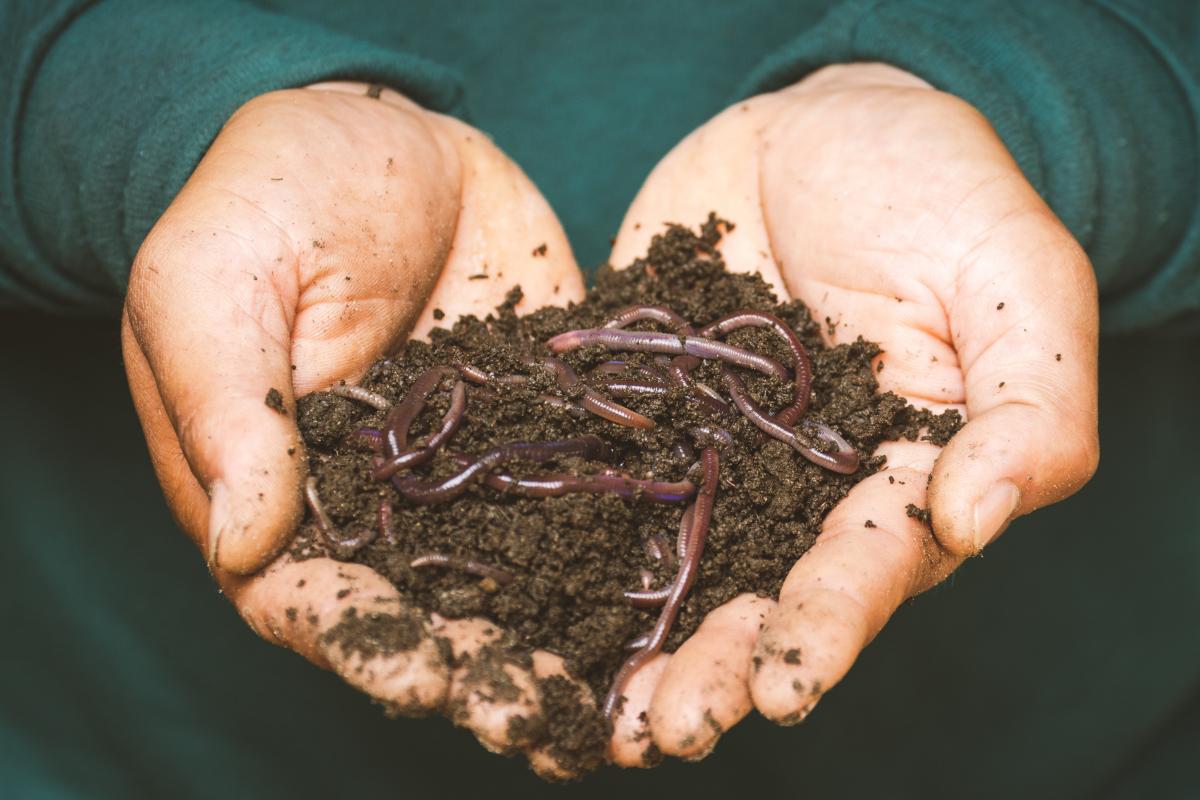Using organic soil amendments reduces heavy metal concentrations in crops grown in contaminated soil
 When the heavy metal cadmium is consumed in excess, it can have a negative impact on kidneys, the liver and bone density, particularly for children who are more sensitive to lower concentrations of heavy metals. These heavy metals can make their way into the food we eat when the metals transfer from the soil to the crops we eat. However, a recent study published in the journal Environmental Geochemistry and Health found that applying organic soil amendments can be a successful decontamination strategy to reduce cadmium. Specifically, the study found that a combination of vermicompost and biochar was the most effective decontamination treatment. The researchers collected soil samples from 60 agricultural fields in Bangladesh and found that all sites were highly contaminated with cadmium. To test whether the application of organic amendments could reduce cadmium concentration in subsequent crops grown in contaminated soil, they applied treatments of vermicompost, biochar, and a combination of the two to the contaminated soil in plant pot trials. In these same pots, they also grew a study crop, red amaranth, to measure how yield would be affected by the organic amendments and how much cadmium the crop up took from the contaminated soil under different treatments. The combination of the two organic amendments resulted in the greatest crop yield and a reduction of cadmium uptake in the crop by 72%. This research shows that using organic amendments, and, in this case, using vermicompost and biochar specifically can help reduce heavy metal contamination in agricultural soils.
When the heavy metal cadmium is consumed in excess, it can have a negative impact on kidneys, the liver and bone density, particularly for children who are more sensitive to lower concentrations of heavy metals. These heavy metals can make their way into the food we eat when the metals transfer from the soil to the crops we eat. However, a recent study published in the journal Environmental Geochemistry and Health found that applying organic soil amendments can be a successful decontamination strategy to reduce cadmium. Specifically, the study found that a combination of vermicompost and biochar was the most effective decontamination treatment. The researchers collected soil samples from 60 agricultural fields in Bangladesh and found that all sites were highly contaminated with cadmium. To test whether the application of organic amendments could reduce cadmium concentration in subsequent crops grown in contaminated soil, they applied treatments of vermicompost, biochar, and a combination of the two to the contaminated soil in plant pot trials. In these same pots, they also grew a study crop, red amaranth, to measure how yield would be affected by the organic amendments and how much cadmium the crop up took from the contaminated soil under different treatments. The combination of the two organic amendments resulted in the greatest crop yield and a reduction of cadmium uptake in the crop by 72%. This research shows that using organic amendments, and, in this case, using vermicompost and biochar specifically can help reduce heavy metal contamination in agricultural soils.
Banner Photo Credit: Julietta Watson; unsplash.com
Photo Credit: Vermicompost; Sippakorn-yamkasikorn; unsplash.com



